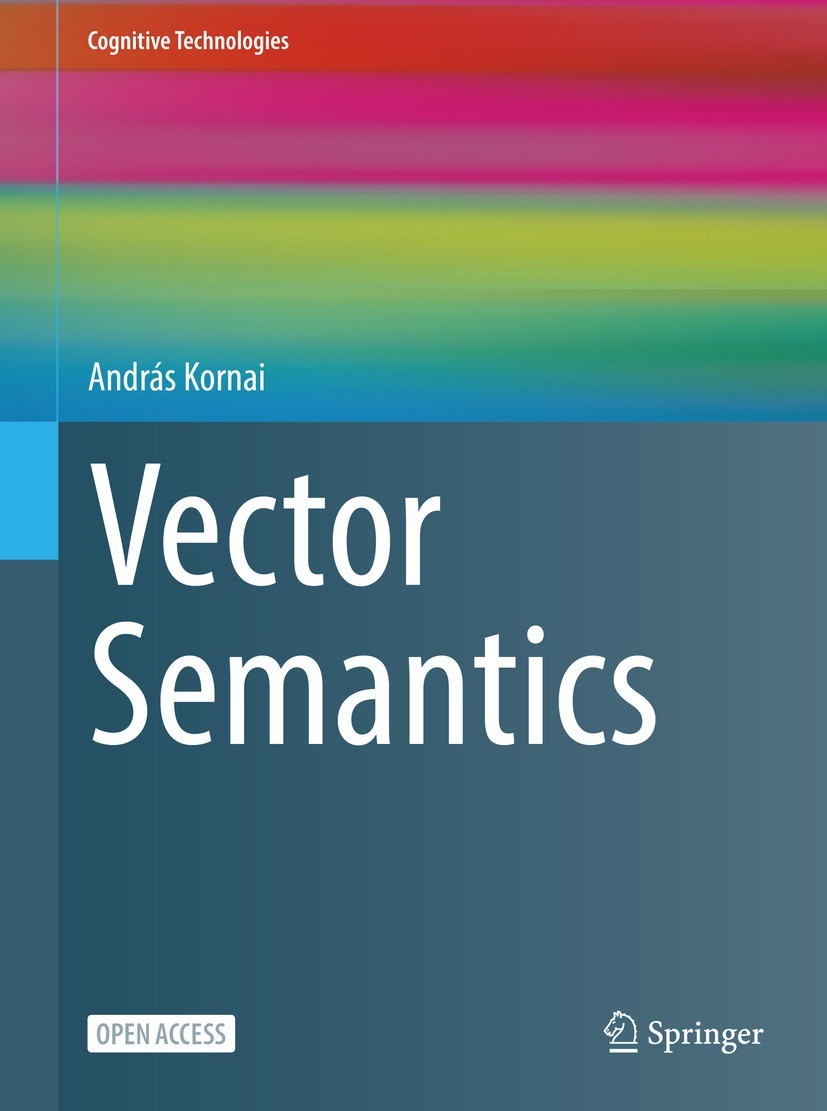| 书目名称 | Vector Semantics | | 编辑 | András Kornai | | 视频video | http://file.papertrans.cn/981/980847/980847.mp4 | | 概述 | This book is open access, which means that you have free and unlimited access.Links the formal theory of word vectors to the cognitive theory of linguistics.Unifies theories originating in linguistics | | 丛书名称 | Cognitive Technologies | | 图书封面 |  | | 描述 | This open access book introduces Vector semantics, which links the formal theory of word vectors to the cognitive theory of linguistics. .The computational linguists and deep learning researchers who developed word vectors have relied primarily on the ever-increasing availability of large corpora and of computers with highly parallel GPU and TPU compute engines, and their focus is with endowing computers with natural language capabilities for practical applications such as machine translation or question answering. Cognitive linguists investigate natural language from the perspective of human cognition, the relation between language and thought, and questions about conceptual universals, relying primarily on in-depth investigation of language in use. .In spite of the fact that these two schools both have ‘linguistics’ in their name, so far there has been very limited communication between them, as their historical origins, data collection methods, and conceptual apparatuses are quite different. Vector semantics bridges the gap by presenting a formal theory, cast in terms of linear polytopes, that generalizes both word vectors and conceptual structures, by treating each dictionary d | | 出版日期 | Book‘‘‘‘‘‘‘‘ 2023 | | 关键词 | Semantics; Natural Language Processing; Computational Linguistics; Artificial Intelligence; explainable | | 版次 | 1 | | doi | https://doi.org/10.1007/978-981-19-5607-2 | | isbn_softcover | 978-981-19-5609-6 | | isbn_ebook | 978-981-19-5607-2Series ISSN 1611-2482 Series E-ISSN 2197-6635 | | issn_series | 1611-2482 | | copyright | The Author(s) 2023 |
The information of publication is updating

|
|
 |Archiver|手机版|小黑屋|
派博传思国际
( 京公网安备110108008328)
GMT+8, 2026-2-9 10:33
|Archiver|手机版|小黑屋|
派博传思国际
( 京公网安备110108008328)
GMT+8, 2026-2-9 10:33


